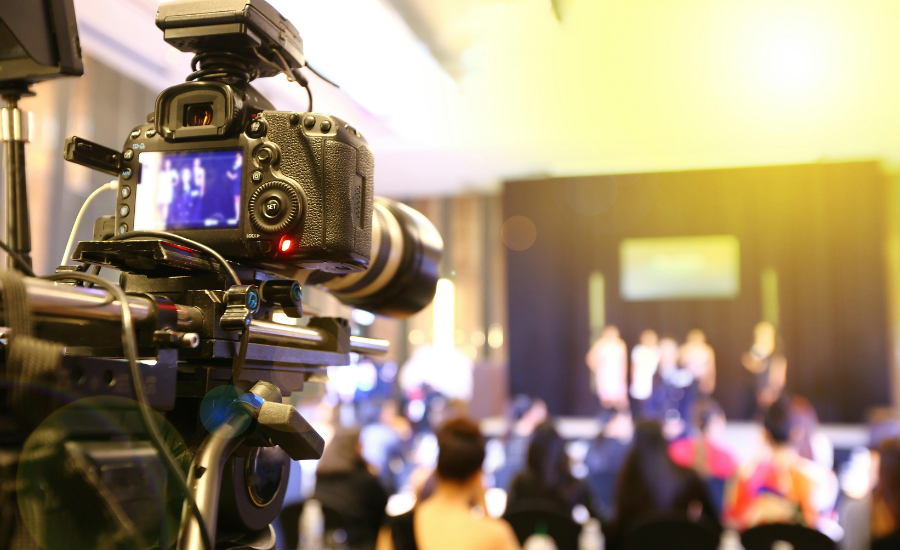In today’s experience-driven world, simply hosting an event isn’t enough. Whether it’s a product launch, a wedding, a fundraiser, or a corporate conference, people want more than just food, music, or a well-decorated venue. They want an emotional connection. They want to remember how it made them feel. This is where storytelling in event branding becomes not just important, but essential.
Good storytelling transforms an event from a one-time gathering into a lasting memory. It breathes life into your theme, aligns every element with your purpose, and leaves your audience with a meaningful impression.
Let’s explore why storytelling matters so much in event branding—and how you can use it to make your next event unforgettable.
Storytelling Creates an Emotional Connection
Great brands don’t just sell products—they sell stories, lifestyles, and emotions. Events are no different. When you weave a compelling narrative into your event branding, you’re inviting attendees to become part of a larger story.
Whether you’re celebrating a milestone or launching a brand, your story sets the tone. It evokes feelings of nostalgia, excitement, curiosity, or inspiration, helping your audience relate on a deeper level.
Example:
A charity gala telling the story of one child’s journey through education supported by donations has a far more powerful impact than a general fundraising appeal.
It Differentiates Your Event from the Rest
With thousands of events happening every day, storytelling gives yours a unique identity. A compelling narrative sets you apart, making your event memorable and recognizable. It helps build anticipation before the event and adds depth during the experience.
Ask yourself:
- What makes this event different from similar ones?
- What journey do I want attendees to take?
Your answers will shape a distinctive brand narrative.
Every Detail Becomes More Purposeful
When you have a central story or theme, every element—from décor to music, lighting to catering—has a role in bringing it to life. This leads to cohesive and intentional design, rather than a collection of disconnected ideas.
For example:
- A corporate event about “innovation and future-forward thinking” could feature digital check-ins, AI-driven experiences, and modern, minimalist aesthetics.
- A wedding with a “storybook romance” theme might incorporate handwritten vows, vintage touches, and fairy-tale-inspired table names.
Suddenly, every detail becomes part of the narrative.
Strengthens Brand Identity
For business or corporate events, storytelling ensures your brand message is not only heard but felt. The more immersive and aligned your event is with your brand story, the more your audience understands and connects with who you are.
Whether you’re a startup sharing your founder journey or an established brand celebrating a new chapter, storytelling ensures attendees experience your brand’s core values in action, not just in words.
Enhances Audience Engagement
People love stories. They remember them. They share them.
When your event is built around a story, attendees are more likely to:
- Stay engaged
- Share their experience on social media
- Connect with other guests emotionally
- Recall specific moments long after the event is over
From your event teaser to the invitation, live experience, and post-event follow-up—your story creates continuity and deepens engagement at every stage.
Helps You Market More Effectively
Marketing an event is easier when you have a strong narrative. It gives you content ideas for social media, email campaigns, videos, and blogs. People are more likely to buy into a story than a generic sales pitch.
Create a “why” behind your event, and people will rally around it.
For example:
Instead of saying, “Join our annual business expo,” say “Be part of a 3-day journey into the future of entrepreneurship—where ideas come alive and networks are born.”
See the difference?
Makes Post-Event Communication More Impactful
Your storytelling doesn’t stop once the event ends. Use it to follow up with attendees in a meaningful way:
- Share a recap that ties into the core narrative.
- Thank them for being part of the journey.
- Highlight key moments as “chapters” in your event’s story.
This keeps the memory alive and encourages people to return next time.
How to Incorporate Storytelling into Your Event Branding
- Start with a strong theme or message: What is the purpose of your event? What’s the story arc?
- Design with intention: Use visuals, colors, typography, and music that reflect the narrative.
- Use touchpoints wisely: Every guest interaction (invite, registration, signage, presentation) should tie into the story.
- Make your attendees the heroes: In every good story, the audience must feel like they’re an essential part of it.
Conclusion
Storytelling is not just a buzzword in branding—it’s the heart of any truly impactful event. It’s how you go from throwing a party to creating a movement. From hosting a seminar to inspiring minds. From planning a wedding to celebrating a lifelong journey.
When done right, event storytelling doesn’t just fill seats. It builds connections, memories, and meaning.
So the next time you plan an event, don’t just ask, “What should we do?”
Ask, “What story do we want to tell—and how do we make people feel like they’re living it?”


